Let us break down some of the key details behind World Economic Forum’s (WEF) the Commons Project with their new vaccine passport for international travel called Common Pass.
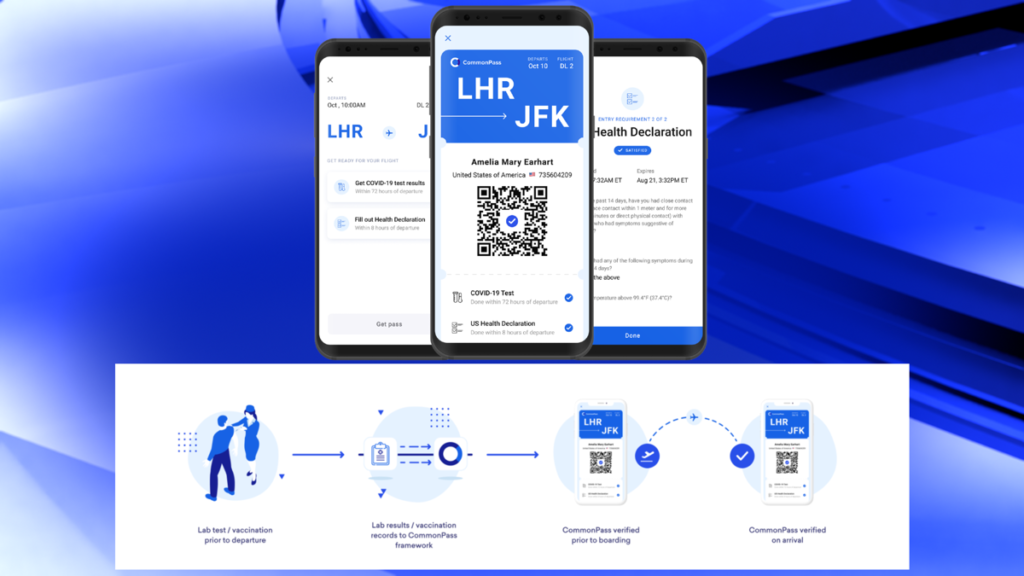
My Common Pass was created by the Commons Project, and it has been used internationally for Coronavirus test results since October 2020. The program operates on both iOS and Android devices, functioning as a scannable QR code that holds a passenger’s test data or vaccine documentation.
On March 26, 2020, the WEF published specifications and launched a new website for a project it christened as “Known Travel Digital Identity” (KTDI): The same people working on KTDI were also tasked to work on My Common Pass

KTDI is a “surveillance-by-design” vision for tracking and control of travellers, and it is more dystopian than anything we have ever seen before.
Known Traveller Digital Identity – “Advancing secure and seamless travel. This project seeks to develop and pilot a decentralized digital identity platform which leverages Fourth Industrial Revolution technologies to help government and industry leaders facilitate seamless and more secure international travel. Together with a community of travel security experts, policymakers, businesses and international organisations, the project will achieve this.”


KTDI uses a blockchain based distributed ledger to bind together, through an app on a traveller’s mobile device, all of the following data sets:
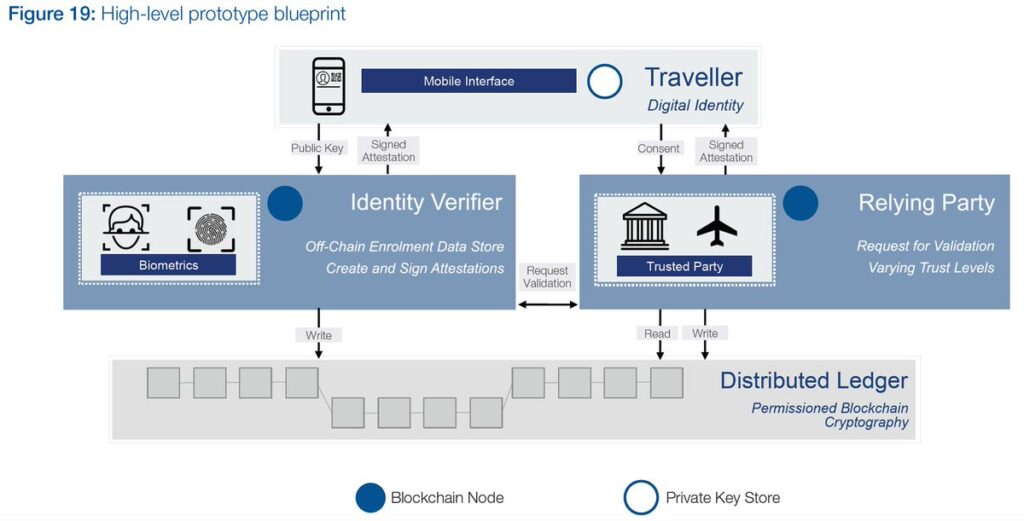
Biometrics (initially facial images, possibly also fingerprints, etc.), Government-issued ID credentials (passport number, etc.) Travel history including logs of border crossings, hotel stays, and possibly also car rentals and/or other events. Purchase logs and possibly bank account information and/or other financial and transaction records. Pre-crime predictive “risk assessment” and profiling scores generated at each “intervention” point before and during each trip or transaction. The white paper is below.


You see each hotel stay, purchase, or other transaction would become like a border crossing permanently stamped in your passport as part of a digital “trip pass” subject to inspection on demand by authorities at subsequent “intervention” points:
All of this data is intended to be linked and used to discriminate between travellers whose ID-linked pre-crime profiles are scored as “high risk” or “low risk”:
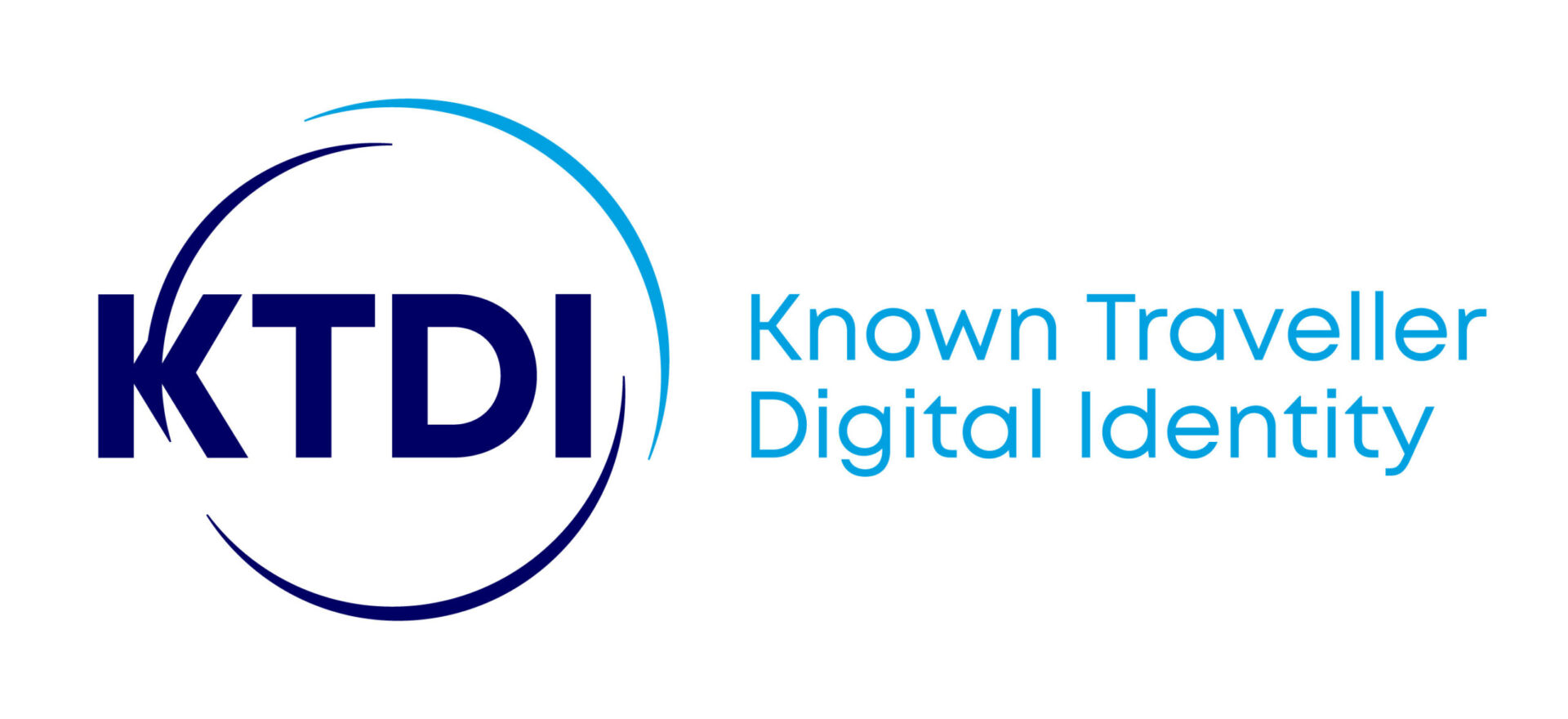
Access to more comprehensive travel history and transaction logs is a longstanding goal of government surveillance and travel-control agencies. In accordance with standards set by ICAO, space is reserved on the RFID chip is each e-passport for travel history data. But this was intended, so far as we can tell, solely for border crossing or entry / exit data, not for logs of hotel stays or other transactions. So far as we know, few countries have recorded any travel history data on passport RFID chips. Probably because of the limited space reserved in the data structure and the complications of securely changing or adding to the data on the chip once it is first written and digitally signed by the issuing government.

In a presentation at the Hotel Electronic Distribution Network Association (HEDNA) conference, representatives of Accenture (the prime contractor to the WEF for the KTDI project) and Marriott boasted of how, based on KTDI data, an individual could be picked out of a crowd for “blacklisting” using automated facial recognition, “without stopping or acknowledging the camera.” So, it can be used for surreptitious, non-consensual mass surveillance.
KTDI partners include government agencies (DHS, ICAO, INTERPOL, etc.) and airline and IT industries (IATA, Amadeus, etc.). Also, Google, the Marriott and Hilton (US-based) and Accor (France-based) hotel chains, and Visa. Andrea Serra is the ‘Project Lead’ for both the WEF Known Traveller Digital Identity and the Common Pass system. This is the same system now being advocated and promoted by Tony Blair’s Institute GC for which may be adopted by the UK at this year’s G7.

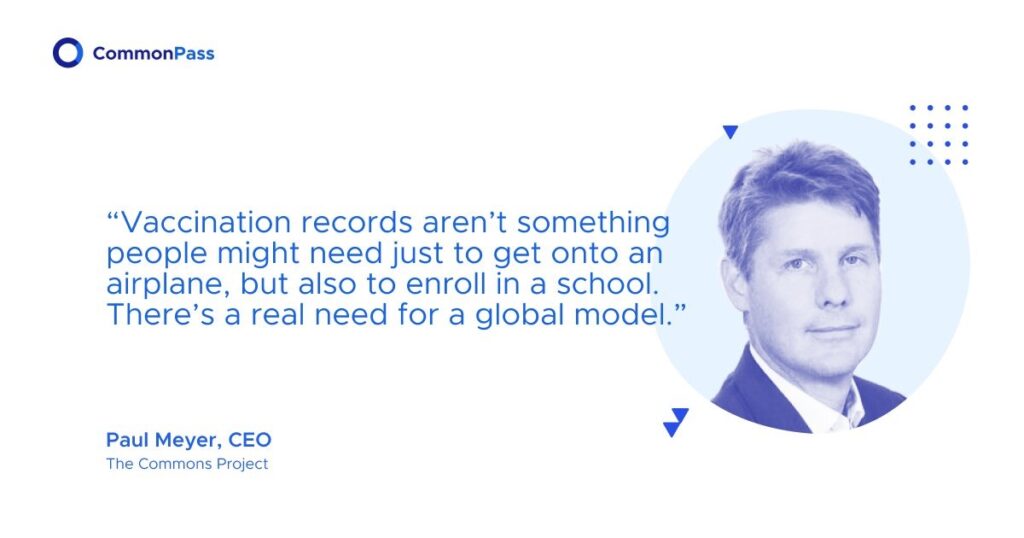
Indeed this is a global governance model, In 2018 the WEF’s Known Traveller Digital Identity, a concept that improves security and seamless flow of people across borders was working with the Amadeus Group.

And now the very same company: Spain’s Amadeus is deploying vaccine documents upload for airlines. Spain’s Amadeus is launching a feature allowing people to upload documents such as COVID-19 vaccination certificates onto an airline app or website, as the travel industry scrambles for ways to get planes flying again.
Coincidence? that the same companies which were involved in the development of this, have now fast tracked the same technologies on the back of the pandemic.

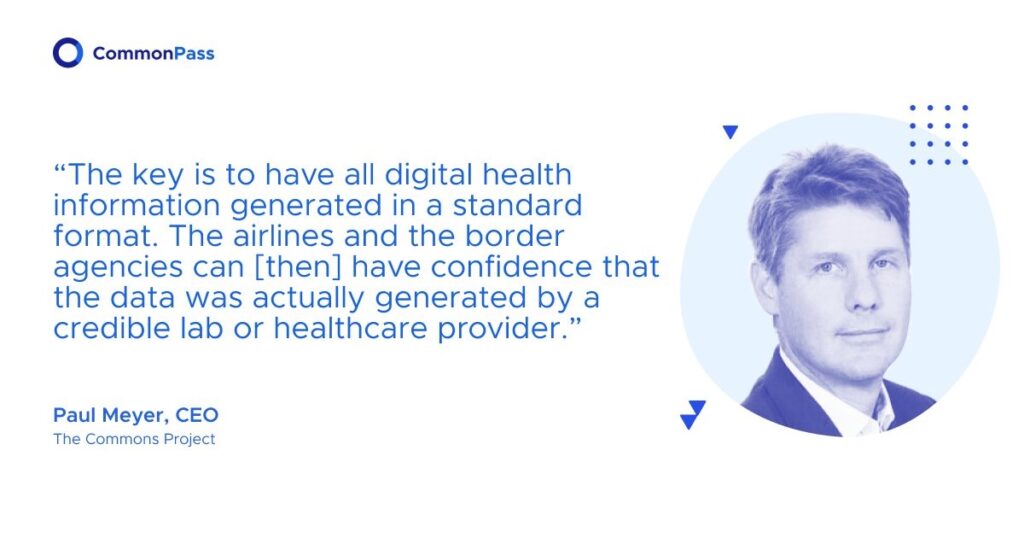
“If you get this right, then downstream systems, whether airlines, border agencies and the sports teams can have confidence that the data was actually generated by a credible lab or healthcare provider at the beginning.” – The Commons Project CEO Paul Meyers
‘A world-wide health data heist’
Let us be under no illusion, there is much more than meets the eye on vaccine passports and this type of surveillance technology and what it means for us. We must say no to Common Pass. Freedom is a basic human right.














